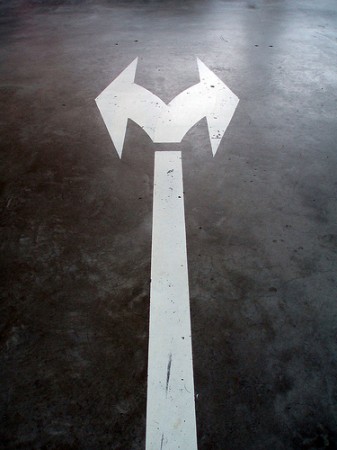
Mohammed El Baradei, former IAEA secretary general, was recently in the headlines for a rather unexpected reason. Upon his return to Egypt from Vienna he seemed to (tacitly) accept the mantle of challenger to Mubarak rule, potentially placing him in the running for the presidency in 2011.
Does he have what it takes to take on a regime known for severe suppression and dislike of opposition figures?
He has many assets that the other (past and present) candidates do not have.
He is an internationally recognized diplomat, he won the Nobel Peace Prize in 2005 and he is known for his rigorous, professional attitude. He lived for the most part of his life outside Egypt, has not been “corrupted” by the Egyptian political system and will bring fresh new air to a dusty political apparatus that has not changed since 1981.
At the same time the Egyptian political system is set up in a way that may prohibit El Baradei from qualifying for the presidential election. According to Egyptian electoral law, “Each licensed political party has the right to nominate one candidate from its most senior leadership for this presidential election [El Baradei is not a member of any political party in Egypt]. From 2011 only parties established for over five years, with at least 5 percent of seats in parliament, can field a candidate. Independent candidates must be endorsed by 250 elected members of Egypt’s representative bodies: parliament, or the local and provincial councils.”
The tricky part is that these bodies are dominated by the governing party, the National Democratic Party, so independent candidates are very unlikely to win approval.
Earlier this year, Mubarak called for a multi-candidate election and the candidacy of El Baradei provides a unique opportunity to live up to this promise and open up the regime. Mubarak may therefore decide to amend the law and let El Baradei run. At least that is what a true democrat would do. But at the same time, Mubarak Senior needs to pave the way for the presidency of Mubarak Junior. His proclamations may therefore prove to be empty promises in the end.
This election is about much more than El Baradei against Mubarak. The two ‘candidates’ represents two different ways of governing and will undoubtedly lead the country in two radically different directions. Egypt is at a crossroad. It needs to decide if it goes in the direction of democracy, or if it sinks down deeper into authoritarianism.
For President Mubarak there are two clear options:
The first one is to open the regime and let the people of Egypt decide who will be the next president. The second option is to close the regime further by arresting opposition members and pressuring potential candidates not to run against his son.
Without being overly cynical or pessimistic, the second option is more likely to happen than the first.
That’s why, even if El Baradei succeeds in winning the approval of 250 elected members, the Egyptian government can easily force potential candidates not to run. Tried and tested measures in the arsenal of the regime include: public defamation, pressure on the family, arrest of supporters, freezing of financial assets, etc.
Moreover, the geopolitical position of Egypt in the Middle East and its strategic partnership with the Western world will probably protect the regime from tough sanctions.
Deeply undemocratic, Egypt ranks 119 out of 167 in the democracy index, and its long-time leader does not have a track record of compromising with political opponents.
It would also not be the first time that an international figure running for an important position gets silenced by an authoritarian regime. Remember Prince Bandar?
So, El Baradei, for the sake of Egypt, please make sure that you have all the cards in your hand before attempting to run for the presidency against the mighty Mubarak dynasty.

